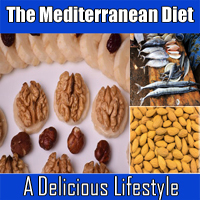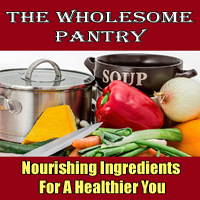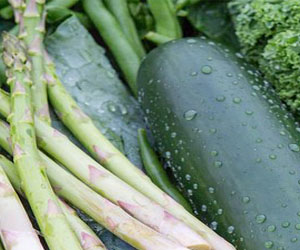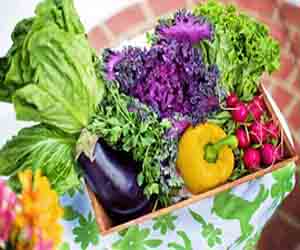


More Than A Caffeine Fix

Coffee culture is a global phenomenon, a vibrant and dynamic expression of our collective love for the beloved coffee bean. It's more than just a beverage; it's a way of life, a cultural institution that transcends borders and brings people together over a shared appreciation for this caffeinated elixir.
Coffee culture isn't confined to a single country or region; it's a worldwide tapestry of rituals, traditions, and preferences. From the bustling coffeehouses of Italy to the cozy neighborhood cafes in Paris, the minimalist Scandinavian coffee bars to the specialty shops of the United States, each culture has its unique approach to enjoying coffee.
In Italy, coffee culture is synonymous with the espresso, a concentrated shot of liquid gold that Italians consume multiple times a day. The espresso bar, or "caffe," is not just a place to get a quick caffeine fix; it's a social hub where people gather to chat, argue, and take a moment to savor life.
In the Middle East, coffee culture revolves around the intricate art of brewing and serving Turkish coffee. This finely ground, strong brew is not merely a pick-me-up; it's a gesture of hospitality and a symbol of cultural identity. The brewing process itself is a mesmerizing dance of tradition and ceremony.
Scandinavia, on the other hand, has redefined coffee culture with its embrace of the minimalist and Scandinavian concept of "hygge." Scandinavian cafes are known for their clean lines, cozy atmospheres, and a focus on quality over quantity. They take the time to appreciate the simple pleasure of a well-brewed cup.
The specialty coffee movement in the United States has revolutionized coffee culture, elevating it to a level of precision and craftsmanship previously unseen. Coffee lovers have become connoisseurs, scrutinizing everything from bean origin and roast level to brewing methods and latte art. It's a culture that values transparency and the connection between farmers, roasters, and baristas.
In Australia, the flat white is the king of coffee culture. This creamy, velvety espresso-based drink has a devoted following. Coffee shops down under are known for their emphasis on quality milk and the importance of a silky microfoam.
The essence of coffee culture transcends borders because it embodies universality. Regardless of where you are, a cup of coffee is an invitation to pause and connect. It's the aroma that greets you, the warmth that embraces you, and the flavor that lingers on your palate.
Coffee culture has also spurred innovation. From third-wave coffee to nitro cold brew, the coffee industry continually evolves to satisfy the discerning palates of enthusiasts. Coffee culture has given rise to global competitions in barista skills, latte art, and even coffee tasting, where professionals and amateurs alike come together to celebrate their shared passion.
Coffee culture is an ever-evolving, inclusive, and diverse celebration of the world's favorite caffeinated beverage. It's a testament to the way a simple bean has woven itself into the fabric of human culture. Whether you're sipping an espresso in Rome, a pour-over in Seattle, or a cappuccino in Vienna, you're participating in a rich and complex tradition that connects coffee lovers around the globe. Coffee culture is, indeed, more than a caffeine fix; it's a universal language of connection, community, and shared experiences.
Exploring The Benefits Of Organic Options
 Supporting Sustainable Agriculture: Organic options are closely linked to sustainable agriculture, which promotes ethical and environmentally friendly practices. Sustainable farming methods not only protect the environment but also support the livelihoods of farmers. By purchasing organic products, you're contributing to a more sustainable and fair agricultural system.
Supporting Sustainable Agriculture: Organic options are closely linked to sustainable agriculture, which promotes ethical and environmentally friendly practices. Sustainable farming methods not only protect the environment but also support the livelihoods of farmers. By purchasing organic products, you're contributing to a more sustainable and fair agricultural system.
Cleaner And Safer Cosmetics: Organic options extend beyond the realm of food. Organic cosmetics and personal care products are also available, offering consumers a safer and more natural way to care for their bodies. These products are typically free from harmful synthetic chemicals, making them a healthier choice for both your skin and the planet.
Transparency And Certification: Organic options are subject to stringent certification standards in many countries. These standards ensure that products labeled as "organic" meet specific criteria. This certification provides consumers with transparency and confidence in the products they purchase.


Unprocessed Foods And Their Vital Role In Health
 Rich In Nutrients: Unprocessed foods are loaded with vital nutrients. Fresh fruits and vegetables, for instance, provide an array of vitamins, minerals, fiber, and antioxidants that are essential for overall health. These nutrients are not only abundant but also easily absorbed by the body.
Rich In Nutrients: Unprocessed foods are loaded with vital nutrients. Fresh fruits and vegetables, for instance, provide an array of vitamins, minerals, fiber, and antioxidants that are essential for overall health. These nutrients are not only abundant but also easily absorbed by the body.
Low In Harmful Additives: One of the major drawbacks of processed foods is the presence of artificial additives, including trans fats, high-fructose corn syrup, and excessive sodium. Unprocessed foods are devoid of these harmful additives, reducing the risk of health issues such as obesity, cardiovascular diseases, and high blood pressure.
Balanced Macronutrients: Whole foods contain a natural balance of macronutrients - carbohydrates, proteins, and fats - without an excessive amount of any one component. This balance promotes steady energy levels and helps regulate blood sugar, making unprocessed foods an ideal choice for those concerned about diabetes or weight management.
Nourishing Your Body And Soul
 1. Nutrient-Rich Meals: Wholesome cooking allows you to maximize the nutritional value of your meals. By using fresh fruits, vegetables, whole grains, lean proteins, and healthy fats, you ensure that your body receives the essential vitamins, minerals, and antioxidants it needs.
1. Nutrient-Rich Meals: Wholesome cooking allows you to maximize the nutritional value of your meals. By using fresh fruits, vegetables, whole grains, lean proteins, and healthy fats, you ensure that your body receives the essential vitamins, minerals, and antioxidants it needs.
2. Flavorful Dishes: One of the highlights of wholesome cooking is the exceptional flavor of the dishes you prepare. Using fresh and natural ingredients results in meals bursting with taste, aromas, and textures that can't be replicated by processed foods.
3. Control Over Ingredients: Wholesome cooking gives you complete control over what goes into your food. You can avoid excessive salt, sugar, and unhealthy fats, ensuring that your meals align with your dietary preferences and health goals.
4. Mindful Eating: Preparing meals from scratch encourages a mindful approach to eating. You become more attuned to the flavors and textures of your food, fostering a deeper appreciation for each bite and promoting better portion control.
Reducing Environmental Footprints
 3. Consumer Demand: As consumers become more eco-conscious, they actively seek products with sustainable packaging, influencing manufacturers to adapt their practices.
3. Consumer Demand: As consumers become more eco-conscious, they actively seek products with sustainable packaging, influencing manufacturers to adapt their practices.
4. Regulatory Pressure: Governments and organizations are imposing regulations and guidelines to encourage or mandate sustainable packaging practices.
Sustainable Packaging Elements:
To achieve eco-friendliness, sustainable packaging incorporates various elements:
1. Recycled Materials: Using recycled materials for packaging helps reduce the need for new resource extraction and minimizes waste.
2. Biodegradability: Some sustainable packaging materials are designed to break down naturally, reducing the impact on the environment.
 The Future Of Nutrition: As our understanding of nutrition evolves, so do the options for nutritious products. Advances in food science and technology continue to enhance the efficacy and quality of these products. The future holds the promise of even more innovative solutions to help us meet our nutritional needs effectively and conveniently.
The Future Of Nutrition: As our understanding of nutrition evolves, so do the options for nutritious products. Advances in food science and technology continue to enhance the efficacy and quality of these products. The future holds the promise of even more innovative solutions to help us meet our nutritional needs effectively and conveniently.
Nutritious products are a valuable addition to our modern lives, providing a convenient and efficient way to ensure our bodies receive the essential nutrients they require. While they should not replace a well-rounded diet of whole, unprocessed foods, they play a crucial role in filling nutritional gaps and supporting our overall health and well-being. With a wide range of options available, finding the right nutritious products to complement your dietary choices and health goals has never been easier.
 What Are Anti-Inflammatory Foods?
What Are Anti-Inflammatory Foods?
Anti-inflammatory foods are those that help to reduce chronic inflammation in the body. They do this by containing specific compounds that have natural anti-inflammatory properties. These foods include a wide range of fruits, vegetables, nuts, seeds, and herbs.
Some of the most well-known anti-inflammatory foods include:
Berries: Blueberries, strawberries, and raspberries are packed with antioxidants, particularly flavonoids, which have potent anti-inflammatory effects.
Fatty Fish: Salmon, mackerel, and sardines are rich in omega-3 fatty acids, which have been shown to reduce inflammation in the body.
Leafy Greens: Spinach, kale, and Swiss chard are abundant sources of vitamins, minerals, and antioxidants that help combat inflammation.
Turmeric: This spice contains curcumin, a powerful anti-inflammatory compound with a wide range of health benefits.
Nuts And Seeds: Almonds, walnuts, flaxseeds, and chia seeds are high in healthy fats, fiber, and antioxidants that reduce inflammation.
Olive Oil: Extra virgin olive oil is known for its anti-inflammatory properties and is a staple of the Mediterranean diet.